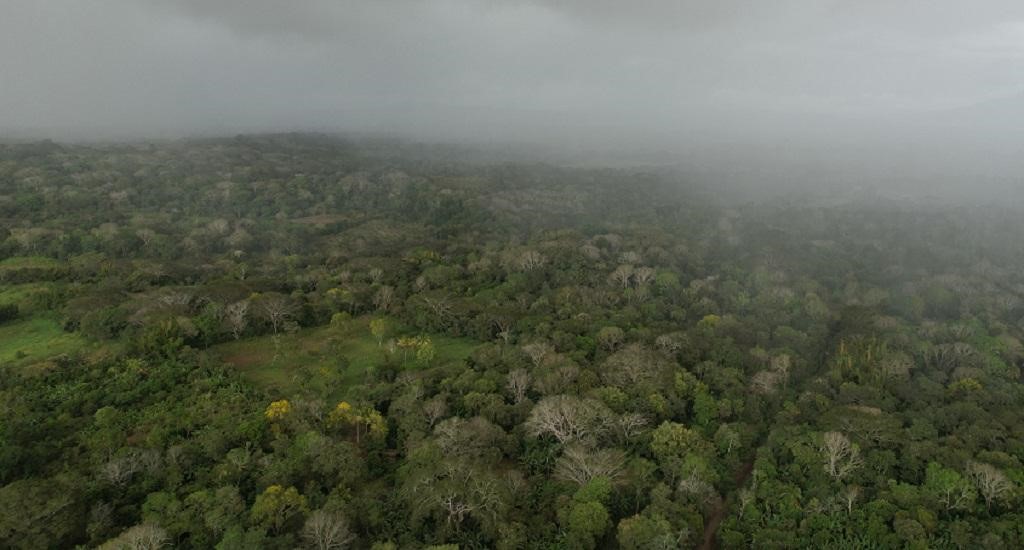Description

Disclaimer: Copyright infringement not intended.
Context
- Discussions on integrated policies on sustainable forest management (SFM) and energy to meet the United Nations-mandated Sustainable Development Goals (SDG) took centre stage at the United Nations Forum on Forests (UNFF18).
Highlights
- They discussed the contributions of SFM to energy, livelihoods and the SDGs.
- The increased use of bioenergy since 2013 has added pressure on forests. Over five billion people across the world benefit from non-timber forest products, of which forest ecosystems provide 55 per cent of renewable energy requirements.
- Over two billion people cook food, while 33 million are directly employed in the forestry sector.
- Industrially harvested trees that become wood residue contribute to a significant source of bioenergy.
- Forests have the potential for reducing five gigatonnes of emissions.
- Suriname, claiming to be the most forested and carbon-negative country, shared its experience of how economic pressure has impacted its green cover and environmental policies.

About UNFF18
- The United Nations Forum on Forests (UNFF) is a high-level intergovernmental policy forum.
- The forum includes all United Nations member states and permanent observers, the UNFF Secretariat, the Collaborative Partnership on Forests, Regional Organizations and Processes and Major Groups.
History
- In 1992, the United Nations Conference on Environment and Development, ("Earth Summit") held in Rio de Janeiro, adopted the Non-legally Binding Forest Principles together with Agenda 21, which included a chapter (Chapter 11) on "Combating Deforestation".
- Following the Earth Summit, the UN established the Intergovernmental Panel on Forests (IPF) and its successor, the Intergovernmental Forum on Forests (IFF), to implement the Forest Principles and Chapter 11 of Agenda 21.
- From 1995 to 2000, the IPF/IFF processes dealt with such issues.
- In 2000, the United Nations Economic and Social Council (ECOSOC) established UNFF based on the Rio Declaration, the Forest Principles, Chapter 11 of Agenda 21 and the outcome of the IPF/IFF Processes and other key milestones of international forest policy.
Principal functions
- To facilitate implementation of forest-related agreements and foster a common understanding on sustainable forest management.
- To provide for continued policy development and dialogue among Governments, international organizations, including major groups, as identified in Agenda 21 as well as to address forest issues and emerging areas of concern in a holistic, comprehensive and integrated manner.
- To enhance cooperation as well as policy and programme coordination on forest-related issues.
- To foster international cooperation.
- To monitor, assess and report on progress of the above functions and objectives.
- To strengthen political commitment to the management, conservation and sustainable development of all types of forests.
Global Forest Goals
- The UN Strategic Plan for Forest (2017 – 2030) has adopted a set of six Global Forest Goals and 26 associated targets to be reached by 2030, which are voluntary and universal.
- Goal 1: Reverse the loss of forest cover worldwide through sustainable forest management, including protection, restoration, afforestation and reforestation, and increase efforts to prevent forest degradation and contribute to the global effort of addressing climate change
- Goal 2: Enhance forest-based economic, social and environmental benefits, including by improving the livelihoods of forest-dependent people
- Goal 3: Increase significantly the area of protected forests worldwide and other areas of sustainably managed forests, as well as the proportion of forest products from sustainably managed forests
- Goal 4: Mobilize significantly increased, new and additional financial resources from all sources for the implementation of sustainable forest management and strengthen scientific and technical cooperation and partnerships
- Goal 5: Promote governance frameworks to implement sustainable forest management, including through the United Nations forest instrument, and enhance the contribution of forests to the 2030 Agenda for Sustainable Development
- Goal 6: Enhance cooperation, coordination, coherence and synergies on forest-related issues at all levels, including within the United Nations system and across member organizations of the Collaborative Partnership on Forests, as well as across sectors and relevant stakeholders

United Nations Forest Instrument
- In 2007, the UN General Assembly adopted the Non-Legally Binding Instrument on All Types of Forests negotiated by the UNFF earlier that year.
- The purpose of this instrument is:
- To strengthen political commitment and action at all levels to implement effectively sustainable management of all types of forests and to achieve the shared global objectives on forests;
- To enhance the contribution of forests to the achievement of the internationally agreed development goals, including the Millennium Development Goals, in particular with respect to poverty eradication and environmental sustainability;
- To provide a framework for national action and international cooperation.
Collaborative Partnership on Forests
- The Collaborative Partnership on Forests (CPF), a grouping of 15 forest-related international organizations, institutions and convention secretariats, was established in April 2001, following the recommendation of the Economic and Social Council of the United Nations.
- The CPF works to support the work of the UNFF and its member countries and to foster increased cooperation and coordination on forests.
|
PRACTICE QUESTION
Q) The increased use of bioenergy has added pressure on forests. Examine the validity of this statement. (150 words)
|
https://www.downtoearth.org.in/news/forests/unff18-sustainable-forest-management-takes-centre-stage-89304












